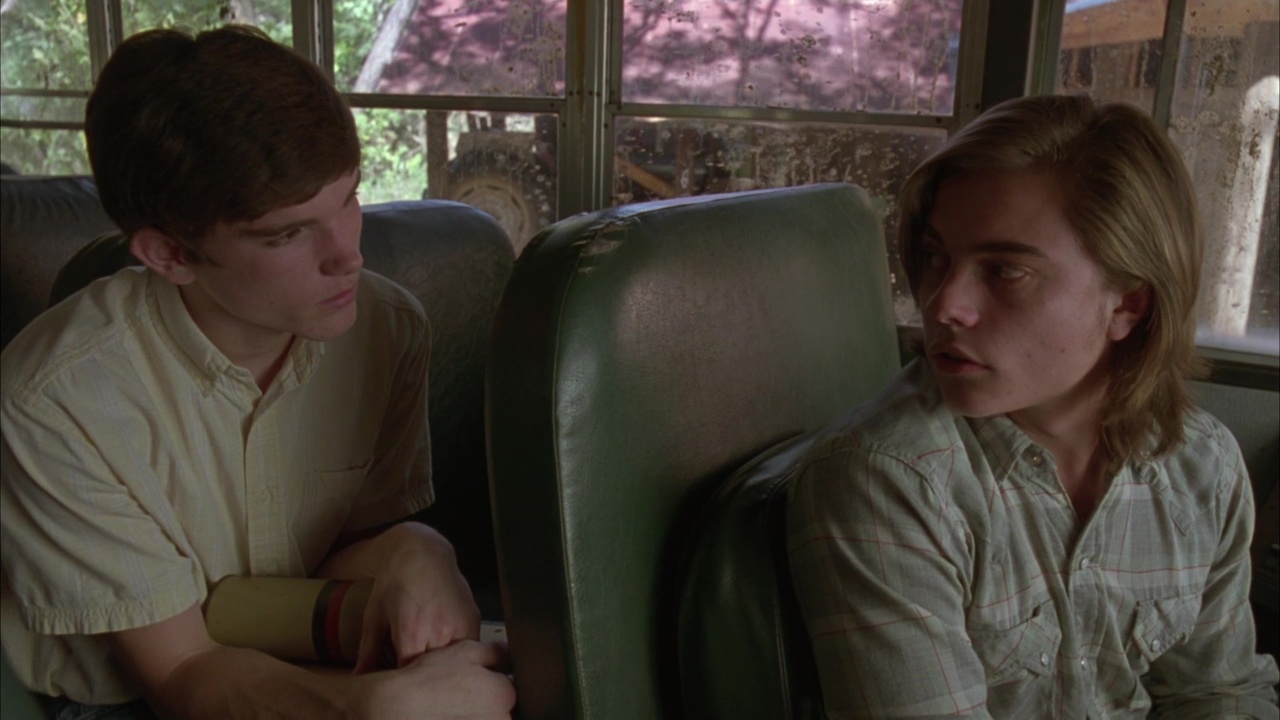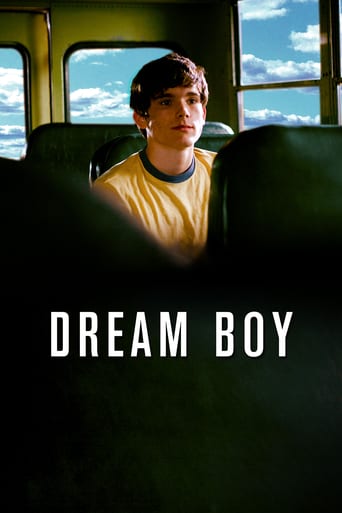



Very well executed
Great visuals, story delivers no surprises
Instead, you get a movie that's enjoyable enough, but leaves you feeling like it could have been much, much more.
View MoreTells a fascinating and unsettling true story, and does so well, without pretending to have all the answers.
View MoreI thought it was very well written. True to life on how homosexuality was look upon in that time period across the country in general, and especially in the deep south. I loved the fact that they didn't write the story with the attitude that coming of age and self discovery isn't always sunshine and rainbows. That growing up is hard enough, let alone if growing up with a very troubled family. I thought it addresses realistically the torment and fear of abuse can cause. Still being able to find the courage to reach out and get close to someone enough to fall in love. I loved the way it showed that the two boys loved each other. Both boys knew exactly how they felt about each other without actually speaking the words. It also touches on how hate crimes were just simply overlooked during that time period. I absolutely loved this movie. I would also definitely recommend people to watch it. It definitely tugs on the heart strings.
View MoreThis movie is fine until the last 15 minutes. Some people here have said that the film could never capture the subtleties of the book. That may be so but the film does stand on it's own merit...until the very end.I found the last fifteen minutes absurd and a difficult swallow. (No pun intended.) Are we really to believe that Ray is willing to risk everything for a blow job in close proximity to his very straight and butch comrades ?Are we really being compelled to believe that Nathan, who has obviously suffered sexual abuse from his father now dies whilst being raped by one of Ray's butch friends. Sorry, but it looks all too ridiculous on film. Then the ending is fudged. Do they leave the body in the house undiscovered ? Did they show it to the father ? Did anybody find out ? Does Ray realize his blow-job has cost his lover Nathan his life as well as make his straight buddy a raping murderer ?Do we assume it's Nathan's ghost that haunts Roy in the final sequence or that everything is back to normal and nothing actually happened ?It all gets a bit Twin-Peaks at best with a big emphasis on the subject of being haunted, very muddled and confused and unbelievable for everybody else.That's a shame as it had a thing going for it for the first 3/4s of the movie.
View MoreI read the book, and felt it was slow and boring except for certain parts. So when I heard that there was a movie, I was happy. As I was watching the movie I was getting a better feeling than reading the book, I feel there should have been more on the interactions with the father, and the music was kind of annoying, But as a whole it was turning out to be a decent film...Until the "director" tried to be all artsy and suspenseful and ruined the climax ending. The kid was getting rapped, and you have this yuppie music come on like it was just another scene. There's a conversation before or after the attack but of course the horrible "director" though it would be a good idea to turn the music on to were you can only understand mumbles. The acting was OK. The only person that really looked out of place was the kid playing Roy. That's only because he was shorter than the other cast of boys. I think Randy Wayne (who plays Burke in the movie) would have been a better choice for the character Roy. This movie would have been so much better had the "director" focused more on the darker side of things, and knew just a little about using music in scenes.
View MoreDream Boy (2008) Rural dynamics can be tough especially for those who have a hard time adapting to it. That's what happens with newcomer Nathan. And in the process or readjusting to this new environment he finds out there is one boy he can trust: Roy.Is Nathan just a harmless and defenseless kid that seeks out protection? Or is he a very troubled boy, haunted by traumatic events that he never dares to share? Two elements are made obvious in the movie. One: the devastating effects of father on son incest. Two: the even more catastrophic consequences of excessive passivity. Nathan, just like his mother, is of a very submissive nature.Some of the most classic psychoanalytic theories associate submissive-passive behavior with the figure of the abject. Abject is understood as the vilest and lowest position conceivable. It is of course imputed to male on male homosexual intercourse. What remains of interest about this theory, though, is that the abject works in terms of passivity. The male who allows himself to be penetrated is then the vilest and lowest; penetration is understood as the worst of the worst. But even these theories, in all their mighty psychological mumble jumble, seem to confuse the active position with the heterosexual identity. As a result, the straight guy who happens to "top" a gay guy can still brag about it, something he could never even disclose publicly if he had chosen to be the one in the passive position. This, of course, goes to all lengths, it can create hierarchies (for example, who penetrates who in jail), it can serve as an excuse for gay intercourse while maintaining a heterosexual façade, etc.Throughout the film problems are avoided as long as Roy remains in his active position. Roy is the leader of a group of boys and he messes around with a girl, up until this point he could still claim he is straight despite his sexual encounters with Nathan. But when he assumes a more passive position regarding Nathan everything crumbles to pieces and tragedy ensues. When his friends catch him off guard practicing oral sex to Nathan he loses all power and authority. And because of that, his friends are now enabled to partake in abuses they might have not considered before. Consequently, one of Roy's friends will feel encouraged to rape Nathan and then to attack him violently and brutally.There is also an important approach to Jacques Lacan's concept of symbolic death. There is an in-between place. There is an impasse between symbolic death and actual (real) death. Perhaps James Bolton correlates passivity with death. Or perhaps the film simply imbricates the repercussions of real death versus the significance and emotional strength involved in symbolic death."Dream Boy" has a very sad and touching end. It does give conclusion to the premises established since the opening shots. And moreover, it makes the viewer realize how deeply human and fragile the protagonists are. Bolton's bold narrative surpasses the novel's qualities and delivers a stunningly beautiful film.
View More